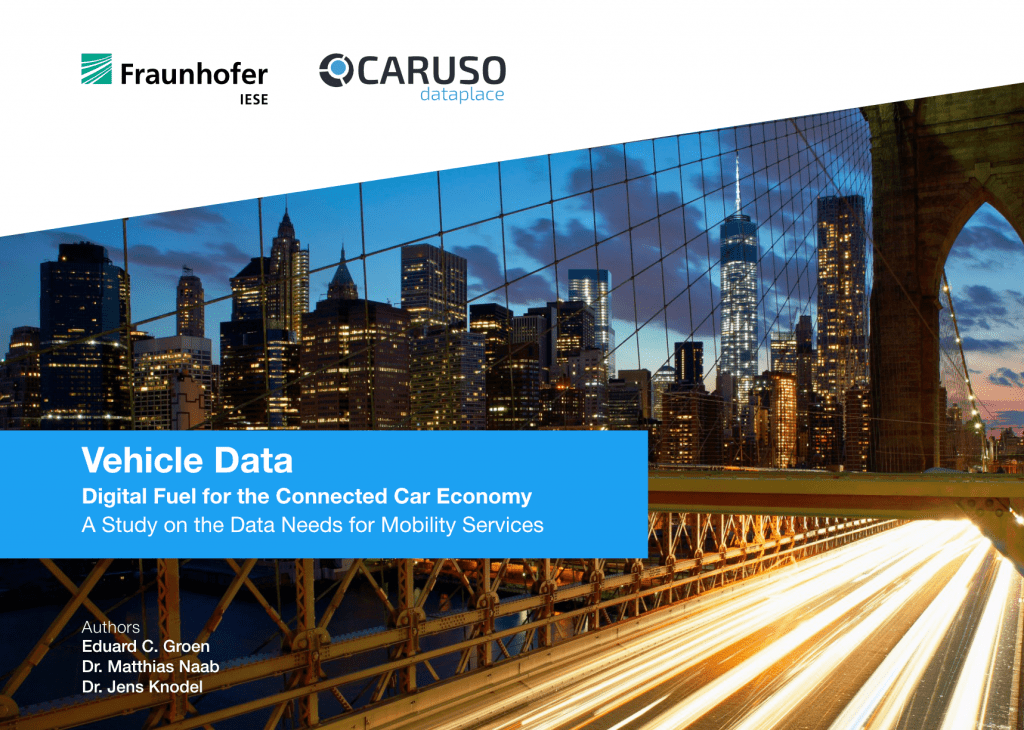Data from connected vehicles is the foundation for many upcoming mobility services. Various technical solutions provide access to in-vehicle data, e.g., readouts via the OBD-II connector, availability of data according to the Extended Vehicle (ExVe) standard, or sharing telematics services via an Open Telematics Platform. Each of these solutions has its own strengths and weaknesses. Currently, vehicle manufacturers are implementing services according to the ExVe standard, which aims at providing a technical baseline for accessing connected vehicle data. This, however, limits the available data content on the OBD-II connector and reduces access to this content by third parties, such as mobility service providers.
Acquiring data from a larger number of vehicles from different brands is a challenge due to data diversity and a lack of central access. This is why CARUSO has taken a first step towards establishing a standardized data catalog. This catalog covers all data items currently seen as relevant for mobility use cases – regardless of whether these are very common or only available for selected models and makes.
Based on the CARUSO data catalog, the Fraunhofer Institute for Experimental Software Engineering IESE and CARUSO conducted a study under the auspices of CLEPA – European Association of Automotive Suppliers. The aim was to identify the data needs of players in the mobility services market.
The key findings of this study were:
The mobility services market requires at least 426 in-vehicle data items to achieve its use cases.
The evaluated responses provided priority levels for data needs towards the 301 data items contained in CARUSO’s in-vehicle data catalog at that time. This confirmed a genuine, strong, and broad interest in this data. An additional 125 data items were requested by the participants.
Providing in-vehicle data at high update frequency requires far-reaching technical innovations.
Steep requirements were imposed on the data update frequency, with 36% of the data items being demanded at sub-second frequencies for particular services. Given today’s mobile communication networks, this can only be achieved by reducing the over-the-air transmission through the ability to perform (pre-) processing in the vehicle.
Data delivery at the needed quality also requires a history of measurements.
Data items are typically already available with the required accuracy, specifying to which decimals a data item should be provided, or in what kind of unit it is requested. However, for monitoring and statistical analyses, historical and aggregated data such as histograms are needed.
Solutions for low latency and historical data are not included in the ExVe standard.
The ExVe standard currently does not deal with (pre-) processing in vehicles, so many envisioned services requiring high update frequencies might technically and economically not be feasible. Access to historical data (e.g., histograms over time) is currently not covered by the ExVe standard either, and this may impose new demands on data providers or data marketplaces like CARUSO.
Conclusion
The study confirms that there is a strong demand for in-vehicle data for many different types of future mobility services. In-vehicle data must be easily accessible to all players providing data-based mobility services. The CARUSO data catalog is the first step towards a uniform view on in-vehicle data, vehicle information and vehicle-related process data. CARUSO will continue to enrich the data catalog and provide regular updates to this study. All interested partners are invited to contribute and share which vehicle data they intend to offer or request.

